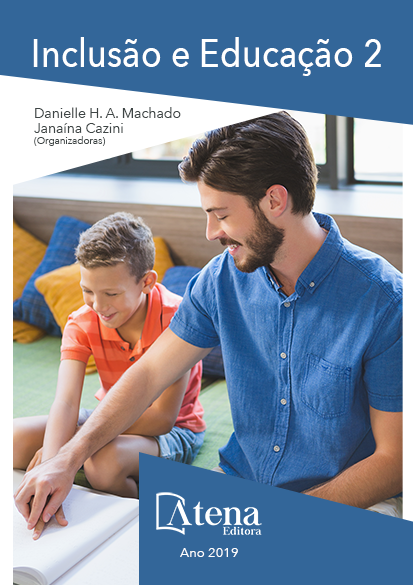
O INTÉRPRETE DE LIBRAS NO SISTEMA EDUCACIONAL DE TERESINA – PIAUÍ
A oficialização da Libras por meio da
Lei 10.436/02, traz uma importante mudança na
inclusão e educação do surdo nas instituições de
ensino, a regulamentação por meio do decreto
5.626/05 passa agora a vigorar o direito da
presença do Intérprete de Libras como mediador
dos saberes que circulam a escola. Assim,
podemos dizer que a educação de surdos tem se
revelado um assunto inquietante às propostas
educacionais direcionadas para esse aluno.
Estudos comprovam que a Libras é a única
modalidade de língua plenamente acessível ao
surdo, e esta regulamentada pela Lei 10.436/02
que oficializa como meio legal de comunicação
e expressão, é uma língua visual gestual, capaz
de favorecer seu desenvolvimento integral,
o intérprete é a ferramenta necessária para
a transmissão desta língua. Este profissional
está legalmente assegurado pela Lei 12.319/10
que oficializa a sua prática promovendo assim
a transmissão de informação em sua língua.
Diante desta necessidade se faz necessário
a presença do Intérprete de Libras em sala
para mediar os conhecimentos. Este artigo tem
como objetivo analisar a prática do Intérprete
de Libras nas escolas estaduais de Teresina
PI, assim, partimos da seguinte problemática:
As escolas Estaduais estão disponibilizando
o profissional Intérprete de Libras para alunos
Surdos? Desta forma, a maior parte dos surdos
no estado do Piauí não tem acesso a uma
escolarização que atende suas necessidades
linguísticas, curriculares, sociais e culturais
por meio da Libras. A sua escolarização tem
produzido resultados pouco efetivos, quando
se pensa no número restrito de surdos que
conseguem concluir seus estudos.
O INTÉRPRETE DE LIBRAS NO SISTEMA EDUCACIONAL DE TERESINA – PIAUÍ
-
DOI: 10.22533/at.ed.30819150111
-
Palavras-chave: Libras. Intérprete. Surdo.
-
Keywords: Pounds. Interpreter. Deaf
-
Abstract:
The officialization of Libras by
means of Law 10.436 / 02, brings an important
change in the inclusion and education of the
deaf in educational institutions, the regulation
by means of decree 5.626 / 05 now comes
into force the right of presence of Interpreter
of Libras as mediator of the knowledge that
circulates the school. Thus, we can say that
the education of the deaf has been a disturbing
subject to the educational proposals directed
to this student. Studies show that Libras is
the only form of language fully accessible
to the deaf, and this is regulated by Law 10.436 / 02, which officializes as a legal
means of communication and expression, is a visual gestural language, capable of
promoting its integral development, the interpreter is the tool needed to transmit this
language. This professional is legally assured by Law 12.319 / 10, which officializes its
practice, thus promoting the transmission of information in its language. In view of this
need it is necessary the presence of the Interpreter of Libras in room to mediate the
knowledge. This article aims to analyze the practice of the Interpreter of Pounds in the
state schools of Teresina PI, thus, we start from the following problem: Are the state
schools making the Professional Pound Interpreter available for Deaf students? Thus,
most deaf people in the state of Piauí do not have access to a schooling that meets
their linguistic, curricular, social and cultural needs through Libras. Their schooling has
produced ineffective results when one thinks of the limited number of deaf people who
can complete their studies.
-
Número de páginas: 15
- Ana Cristina de Assunção Xavier Ferreira


